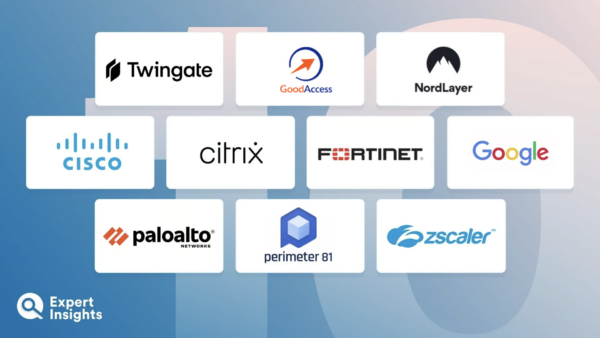Enterprise VPNs are advanced communication networks that enable secure, remote access to corporate resources by employees, stakeholders, and systems, regardless of their physical location. These networks utilize encryption and other security measures to ensure that data transmitted over the internet is protected from unauthorized access, making them an essential tool for modern businesses operating in a digital and globalized environment.
Understanding Enterprise VPNs
At its core, an Enterprise VPN creates a protected network connection over the internet or a private network owned by a service provider. This is achieved by establishing encrypted tunnels through which data can travel securely. Enterprise VPNs are designed to accommodate the needs of larger organizations, offering features such as scalability, advanced security protocols, and comprehensive access control mechanisms. These VPNs support various business activities, including secure communication between offices, remote work, and protection of sensitive information.
Key Features of Enterprise VPNs
The effectiveness of an Enterprise VPN is largely determined by its features. Some of the key features include:
- Encryption: Ensures that data is encoded and can only be accessed by authorized users.
- Scalability: Allows the network to grow with the business, supporting an increasing number of users and data traffic.
- Access Control: Provides the ability to define user permissions, ensuring employees can only access the resources necessary for their roles.
- Multi-Protocol Support: Compatibility with various networking protocols to ensure seamless integration with existing infrastructure.
- High Availability: Ensures the network remains operational, minimizing downtime through redundancy and failover systems.
Types of Enterprise VPNs
| Type | Use Case | Characteristics |
|---|---|---|
| Site-to-Site | Connecting entire networks in different locations | Uses IPsec protocol for secure communications between sites |
| Remote Access | Individual users connecting to the network remotely | Often uses SSL/TLS for secure connections |
| Hardware-Based | Dedicated VPN hardware at the enterprise premises | Offers robust performance and security |
| Software-Based | VPNs that run on general-purpose servers or cloud-based | Flexible and easier to scale but may require more maintenance |
Applications of Enterprise VPN
Enterprise VPNs are versatile tools used in various scenarios, including:
- Remote Work: Enabling employees to securely access corporate resources from anywhere.
- Secure Data Sharing: Facilitating the safe exchange of information between business units or with partners.
- Global Networking: Connecting multiple offices or data centers across the globe securely.
- Regulatory Compliance: Ensuring data privacy and security practices meet legal requirements.
Challenges and Solutions in Enterprise VPN Usage
While Enterprise VPNs offer numerous benefits, they also come with challenges:
| Problem | Solution |
|---|---|
| Scalability Issues | Adopt cloud-based VPN solutions for easier scaling |
| Complex Management | Use centralized VPN management tools |
| Security Vulnerabilities | Regularly update and patch VPN software |
| Performance Bottlenecks | Optimize network architecture and use quality of service (QoS) rules |
Comparative Analysis: Enterprise VPN vs. Other VPNs
| Feature | Enterprise VPN | Personal VPN |
|---|---|---|
| User Base | Large organizations, businesses | Individual users |
| Security | Advanced encryption, access control | Standard encryption |
| Scalability | Designed to support scalability | Limited scalability |
| Management Features | Comprehensive management and monitoring tools | Basic management features |
Future Trends in Enterprise VPN Technology
The future of Enterprise VPNs is shaped by evolving technologies and business needs, including:
- Cloud Integration: Seamless integration with cloud services for enhanced flexibility and scalability.
- Zero Trust Networks: Adopting principles that verify every user and device, regardless of location.
- AI and Machine Learning: Leveraging AI to enhance security measures and network management.
The Role of Free VPNs in Enterprise Environments
While free VPN services, such as FineVPN, primarily target individual users, they can play a role in enterprise scenarios, particularly for small businesses or startups looking for cost-effective solutions for secure remote access. However, enterprises typically require advanced features and dedicated support offered by specialized Enterprise VPN solutions.
Further Resources on Enterprise VPN
For those seeking more information on Enterprise VPN technologies, the following resources can be invaluable:
- IEEE Xplore Digital Library: Offers technical papers and research articles on VPN technologies.
- Gartner Research: Provides market research and analysis on VPN solutions and enterprise network security.
- TechTarget’s SearchNetworking: Features articles, tutorials, and guides on VPN technologies and best practices.
In conclusion, Enterprise VPNs are a critical component of modern business infrastructure, offering secure, scalable, and reliable means for connecting dispersed workforces and protecting sensitive data. As technologies evolve, so too will the capabilities and applications of Enterprise VPNs, ensuring they remain at the forefront of business networking solutions.


